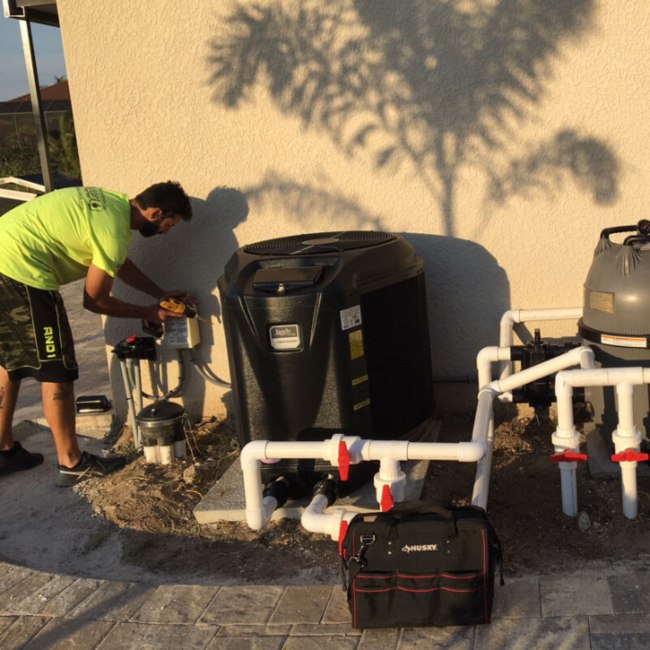Tampa’s Pool Pump and Motor Experts
If you happen to own an older pool, chances are it has a single-speed or two-speed pump. These types of pumps are the traditional models that have been discontinued by manufacturers due to their energy inefficiency and failure to meet the latest guidelines set by the energy commissions for pool equipment.
By choosing to replace your existing single- or two-speed pool pump with a variable speed pump, not only will you save a significant amount of money on your electricity bill, but you’ll also enjoy a quieter and more enjoyable pool experience.
Here at Hawkins Service Company of Tampa, we have a dedicated team of skilled technicians and electricians who are experts in pool equipment repair. You can trust us to handle your pool pump and motor needs, ensuring that your pool stays clean and comfortably warm throughout the entire year.
If you want to learn more about our comprehensive pool services, feel free to give us a call.

Variable Speed Pumps
- Quieter
- More Efficient
- Longer Lasting
- Digitally Controlled
- Big Savings on Electric Utility Bills

Pool Pump Troubleshooting Tips
FAQs
Pump Performance
Noisy Motor
Motor Cycling
If the motor runs for a short while, then shuts itself off and turns itself back on repeatedly, it may be overheating. Low voltage is one of the main causes of an overheating pump motor, so schedule an inspection with a residential electrician to check the electrical supply connectors and wiring.


